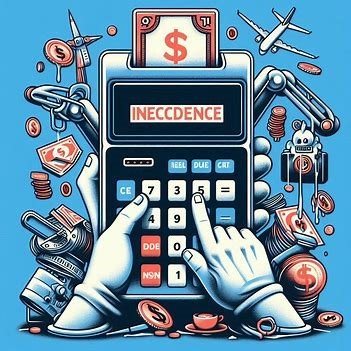Credit card debt is a growing concern among the elderly population. As costs of living and healthcare expenses continue to rise, many seniors find themselves relying heavily on credit cards, leading to mounting debt. Understanding the options available for debt relief is crucial for seniors who are looking to manage or eliminate their credit card debt effectively. This guide explores various strategies that elderly individuals can use to stop paying credit card debts legally and safely.
Understanding Elderly Credit Card Debt
Credit card debt among seniors is an increasingly pressing issue that requires attention and action.
Statistics on Elderly Debt
Recent statistics reveal that more seniors are carrying credit card debt into retirement. According to the Federal Reserve, Americans aged 65 and older owe an average of over $6,000 in credit card debt. This figure is alarming considering that many seniors live on fixed incomes, such as Social Security or pensions, which are often insufficient to cover basic living expenses and debt obligations.
Common Causes of Debt
Several factors contribute to the rise in credit card debt among the elderly. The primary causes include:
- Rising Costs of Living and Healthcare: As medical expenses and everyday living costs increase, many seniors are forced to use credit cards to bridge the gap between their income and expenses.
- Unexpected Expenses: Unplanned expenses, such as home repairs or medical emergencies, often push seniors to rely on credit cards, leading to unmanageable debt.
Legal Protections for Seniors
There are several legal protections available to seniors that can provide relief from overwhelming credit card debt.
Judgment-Proof Status
Many elderly individuals are considered “judgment-proof,” meaning that even if a creditor sues them and wins a judgment, the creditor cannot collect from certain income sources. Protected income sources include Social Security, pensions, disability benefits, and other government benefits. If these are the primary sources of income, seniors may not have to worry about wage garnishment or bank account levies.
Consumer Protection Laws
The Fair Debt Collection Practices Act (FDCPA) provides significant protections against debt collectors who engage in harassment or unethical practices. Under this law, seniors have the right to:
- Request verification of the debt
- Dispute incorrect debt amounts
- Demand that debt collectors stop contacting them
Understanding these rights can help seniors avoid being taken advantage of by aggressive debt collection agencies.
Strategies for Stopping Credit Card Payments
There are several actionable strategies that elderly individuals can use to stop paying credit card debts legally.
Communicating with Creditors
One of the first steps in managing credit card debt is reaching out to creditors. Seniors can explain their financial situation and request lower payments, reduced interest rates, or temporary hardship programs. Creditors may be willing to work with them to avoid default.
Debt Settlement
Debt settlement involves negotiating with creditors to settle the debt for less than the total amount owed. Seniors can offer a lump-sum payment to clear the debt. While this can be an effective way to reduce the amount owed, it may impact credit scores negatively.
Balance Transfer Options
For those seniors who have multiple credit card debts, using a balance transfer credit card can consolidate debts into one payment with a lower interest rate. Many credit cards offer 0% APR for an introductory period, providing temporary relief from high-interest rates.
Exploring Financial Relief Options
In addition to debt settlement and balance transfers, other financial relief options are available.
Bankruptcy as a Last Resort
Bankruptcy can discharge or restructure credit card debt, providing significant relief for those with overwhelming debt. Chapter 7 bankruptcy can wipe out unsecured debt, while Chapter 13 allows for a structured repayment plan. However, this option should be considered a last resort due to its long-term impact on credit scores and financial reputation.
Reverse Mortgages
A reverse mortgage allows seniors to use their home equity to access cash, which can be used to pay off debt. However, this option comes with risks, such as high fees and the potential loss of the home if the terms of the reverse mortgage are not met.
Credit Counseling Services
Credit counseling agencies can help seniors develop a debt management plan (DMP). Reputable agencies can negotiate with creditors for lower interest rates and provide budgeting advice to prevent future debt accumulation.
Avoiding Future Debt
Preventing future debt is just as important as managing current debt.
Budgeting and Financial Planning
Creating a budget helps seniors manage their expenses and avoid unnecessary debt. Sticking to a budget can also help identify areas where spending can be reduced, such as cutting back on non-essential items or finding more affordable healthcare options.
Understanding Credit Use
Educating seniors on responsible credit card use is essential for avoiding future debt. Alternatives to credit cards, such as prepaid debit cards or cash, can be used for everyday purchases to help control spending.
Resources and Support
There are several resources available to help seniors manage and eliminate credit card debt.
Financial Assistance Programs
Various government and nonprofit programs provide financial assistance to seniors facing economic challenges. Programs like the Supplemental Nutrition Assistance Program (SNAP) and Low-Income Home Energy Assistance Program (LIHEAP) can help offset living costs.
Legal Aid for Seniors
Free or low-cost legal aid is available to seniors who need help dealing with debt-related issues. Legal aid organizations can provide advice and representation in dealing with creditors and debt collectors.
Community Support Services
Local community centers, churches, and senior organizations often provide financial education workshops and one-on-one assistance for seniors struggling with debt.
Conclusion
Credit card debt can be a significant burden for elderly individuals, but several options are available to help manage or eliminate it. From legal protections to debt relief strategies like debt settlement and credit counseling, seniors have multiple avenues to explore for financial relief. By staying informed and proactive, elderly individuals can take control of their financial future and reduce the stress associated with mounting debt.


